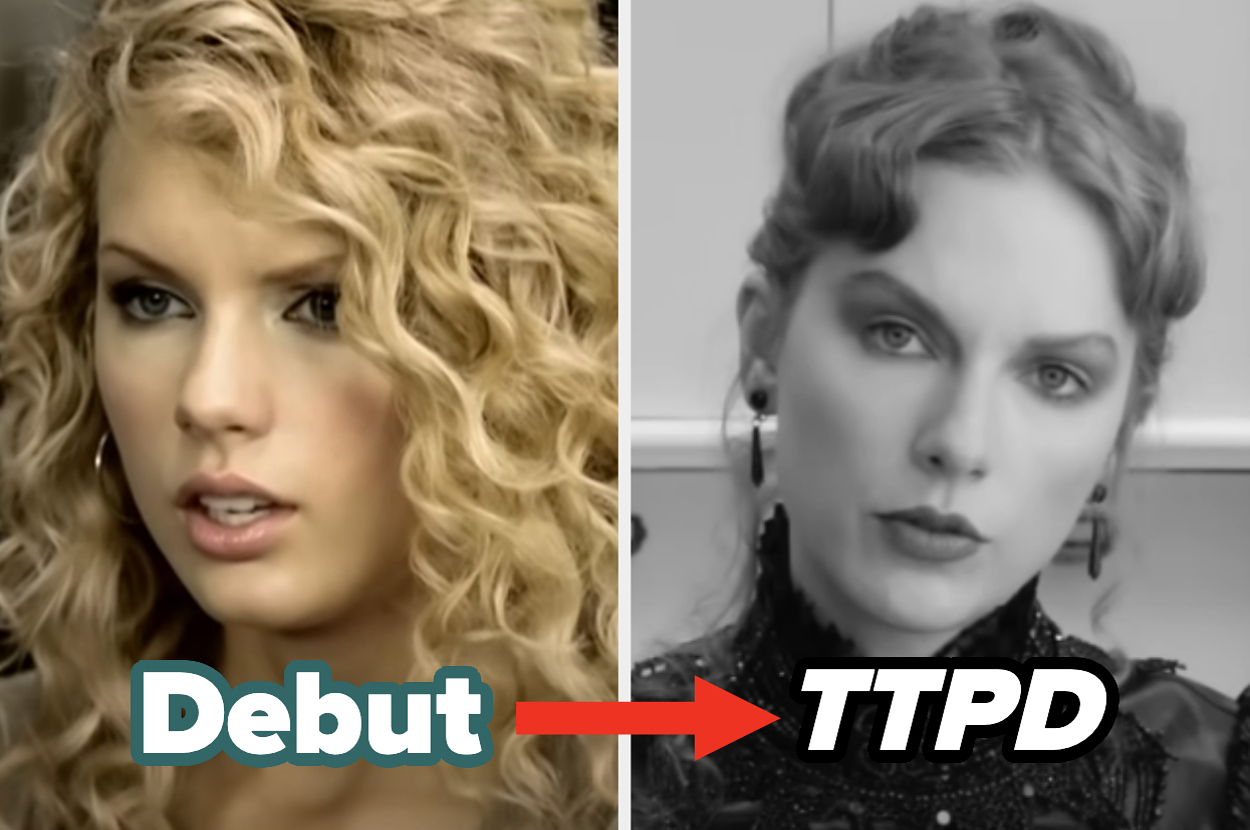
Darius Rucker detailed his life through 23 meaningful songs that “formed” him in his new memoir Life’s Too Short.
“This book is about my life as told through those songs. Songs that took me away, starting at ground level, living in a poor but happy home, never wanting much more, enjoying what I had, even when times got tough, because I had my escape, my refuge,” Rucker, 58, wrote in the memoir, which was released on Tuesday, May 28. “I had my music. My songs. Songs that nobody else in my life could hear, at least not in the way I could. The songs would take me to places I could never dream.”
From his childhood to forming Hootie & the Blowfish at the University of South Carolina and making the decision to pursue country music, Rucker offered an honest look at his life up to this point. Let’s not forget the story about Woody Harrelson saving him from a near-death experience — or his friendship with Tiger Woods.
Keep reading for the biggest revelations from Life’s Too Short:
His Friendship With Woody Harrelson
In the first chapter, Rucker detailed his friendship with Harrelson. While Rucker admitted he wasn’t sure how they met, the singer and actor, now 62, became fast friends. In the late 1990s, Rucker spent two weeks at Harrelson’s Hawaii home, which led to a near-drowning.
Darius Rucker’s Ups and Downs Over the Years
“The current is ferocious. I feel as if some horrific giant squid has lashed itself around my body, circling and tightening its tentacles around my legs, dragging me under the water. I gulp and I gasp and I keep fighting,” Rucker wrote, noting he got pulled by a rip current. “I fight and flail for I have no idea how long — ten minutes, fifteen — and then I hear a voice. Woody. I can’t see him, but I hear him. He’s not far.”
Harrelson floated with Rucker until the country singer felt like he was “drifting away.” Eventually, Rucker told Harrelson, “This is it,” before revealing that he saw “a blinding blast of white” light and visions of his late mother. Harrelson and another friend eventually got Rucker to land.
Difficult Family Dynamics
While Rucker had a great relationship with his mother who died of a heart attack in November 1992, there were two members of his family that the singer did not get along with — his eldest brother Ricky and his father, who was referred to as Blue.
Rucker described Ricky as “rail thin, hyper, on edge, frenetic,”often abusing drugs, and “prone to seizures” due to his epilepsy.
“Ricky never gives anything to anyone, not to me, our sisters, nobody. Ricky only takes. Our family has very little to give. He doesn’t care,” Rucker wrote. “He takes whatever he can, whatever he sees, whatever he can get his hands on, whether it belongs to him or not. Ricky gets into drugs. I’m eleven and I don’t know what Ricky’s using, but I know Ricky can’t hold a job.”
Once in college Rucker said that he eventually gave Ricky “some cash” but eventually decided to “let him go.” He added, “One night, smashed, f–ked up, a seizure coming on, Ricky falls, hits his head, and bleeds to death.”
As for his father, Rucker saw him once as a youngster — that was the last time they crossed paths in 15 years. Then, the singer’s father came backstage at a Hootie & the Blowfish show, which allowed them to reconnect.
“My father. A stranger. He has chosen to remove me from his life. He has remarried. He has another family, another life. I feel pummeled by emotion,” Rucker wrote. “I could shut him out, the way he has shut me out. But instead, I make a decision. I will be the bigger man. I can’t say that I will forgive him, but I will allow him in, at least a crack. I will be — open.”
Eventually, after Rucker made it big, his father asked for $50,000 — which put their relationship to an end.
How Dave Letterman Helped Hootie

A bulk of the memoir was Rucker’s experience with Hootie & The Blowfish after Rucker, Mark Bryan, Dean Felber and Jim Sonefeld formed the band during their sophomore year at the University of South Carolina. They were performing at smaller venues until Letterman “drives from New York to his home in Connecticut after the taping of his show” and hears a Hootie song on the radio.
“He strains to hear the name of the band. The DJ says it. Sort of a joke name. Dave laughs. He’ll never forget that name,” Rucker wrote, noting that Letterman invited them on his late night show shortly thereafter.
“What we don’t know then is that beginning the following Monday and every night for the next year, David Letterman will say randomly, for fun, for good reason, or for no reason at all — Hootie & The Blowfish,” Rucker recalled. “For the next f–king year.”
Meeting Beth Leonard
Rucker met his now-estranged wife at an event in the late 1990s before they became friends. After their friendship got stronger, he eventually asked her on a date. Following their first night out, Rucker knew he would marry Leonard.
“Beth and I marry on December 9, 2000, on the beach in Bermuda,” he wrote. “In the end, we stay married for twenty years, a testament to her in every way: to her strength, her resolve, and her commitment to our kids and to me. Sadly, we uncouple in 2020.”
Substance Abuse Issues
After rising to fame in the band, Rucker gained unfettered access to drugs and alcohol. His beverage of choice was Jim Beam.
“Whatever you got, I’m in. Booze. Drugs,” he wrote of the band. “Everything you can name, anything you can think of, and piles of it, tons of it, as omnipresent as air. We drink, we smoke, we sniff, we stockpile.”
Billy Crystal Recalls Asking the Doctor for Taco Bell After Taking 4 Edibles
Elsewhere in the memoir, Rucker wrote that they would use “day, evening, night, into the next day, always” and “nonstop.”
Rucker also credited Leonard as the one who helped him “stop partying.” She told him: “I will make your life hell.”
His Friendship With Tiger Woods

Rucker met the golfer after playing a show in Michigan.
“We stay in touch and shortly become fast friends,” Rucker wrote. “Hootie & The Blowfish play at his wedding, I sing at Tiger’s thirtieth birthday, I sing at his fortieth birthday, I sing at his dad’s funeral. As time goes on, he gets hit hard by life. He goes through so much, physically, mentally, emotionally, and somehow survives. I stick by him, through it all.”
Experiencing Racism
Growing up Black in the south, racism was something that Rucker experienced throughout his upbringing — but it got worse as he started performing.
“I’m human and when I hear someone say the N-word to me at a frat party, I want to stop the band from playing and f–king fight,” Rucker wrote about the early days of his career. “I’m thankful that I often get buzzed before we go on because that takes the edge off my anger when something like that happens.”
He eventually wrote “Drowning” and “I Don’t Understand” about race. But when it came time to start a country music career, Rucker heard that “the country music world will never accept a Black country singer” — but he beat the odds.
The Success of ‘Wagon Wheel’

While at a school event for his daughter Carolyn, the teachers started playing his 2013 country hit “Wagon Wheel” and Rucker decided to cover the song and it eventually became his “biggest-selling single ever” and nabbed him a Grammy Award.
“I’ve made it. I am a country singer. I am a card-carrying member of the country music club,” he wrote. “Being inducted into the Grand Ole Opry by Vince Gill after being invited by Brad Paisley proves that. What more can I ask for?”
Did Hootie & The Blowfish Break Up?
While Hootie stopped playing together, Rucker noted that the band did not break up “officially or unofficially.” He added, “We don’t call it quits. We don’t say goodbye. We leave every door open.”












